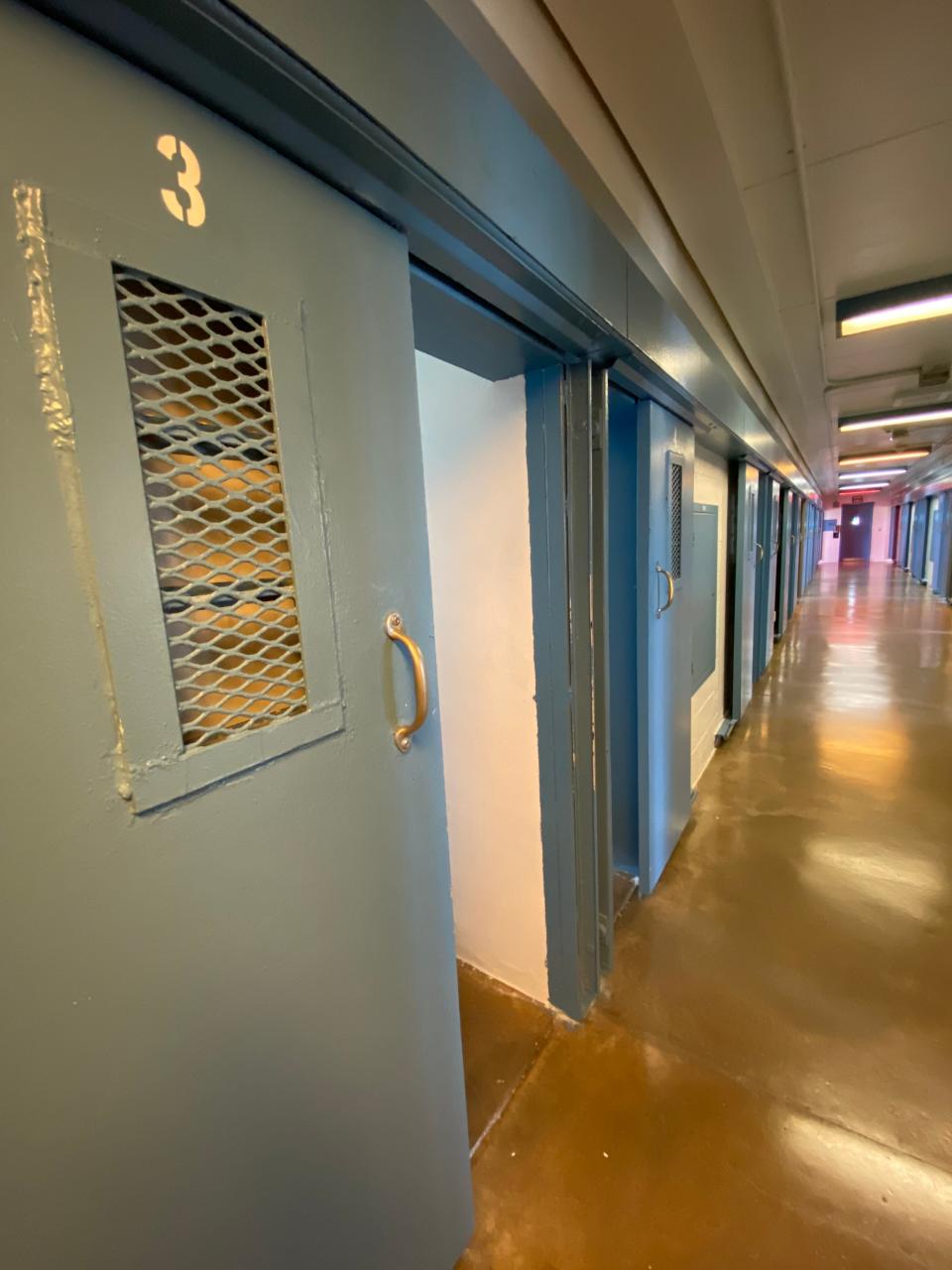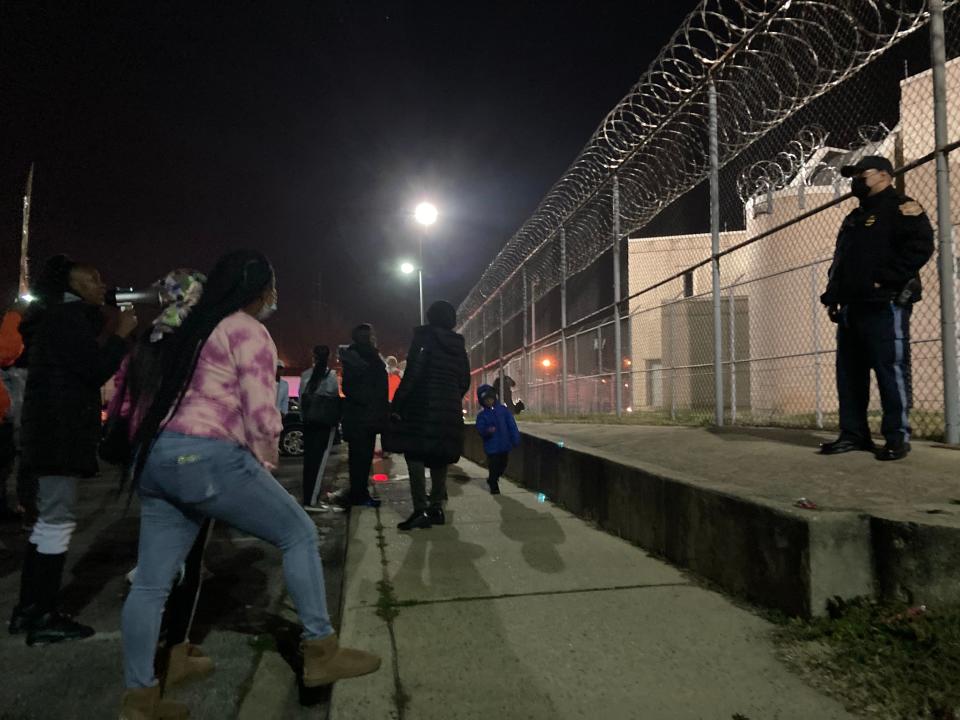The state of Delaware is systematically failing to provide legally appropriate education for youth with learning disabilities in its prison facilities, according to a federal lawsuit filed Thursday.
The lawsuit alleges that the program responsible for providing special education to students in Delaware prisons is legally deficient and has been failing students for years — and that officials are aware of it.
The lawsuit, filed by the Community Legal Aid Society, Inc., known as CLASI, Delaware’s designated public advocate for people with disabilities, paints a picture of a system necessary to provide specialized instruction but that amounts to ” self-study” where students literally learn in chains or are separated from the instructors by plexiglass walls.
Students who filed complaints in recent years have suffered retaliation, according to the lawsuit filed in collaboration with attorneys from Terris, Pravlik & Millian, LLP, a Washington, D.C.-based public interest law firm.
Named as defendants are leaders of the state Department of Education and the Department of Correction, as well as state education officials charged with working with corrections leaders to provide education to incarcerated students. Officials from those entities were not immediately available for comment Friday morning.
It seeks an injunction to require the state to fix many of the issues detailed in the initial 98-page complaint.
Editor’s Note: read the full complaint at the bottom of this story.
The lawsuit seeks systemic change in issues that CLASI officials say they observed while representing people with disabilities trying to remedy their situations.
“It’s disheartening that they are told over and over again that this program is flawed, yet they do nothing,” said Marissa Band, project director of the CLASI Disability Justice Program. “It’s time for (the state) to make real, lasting changes.”

The law
All states are required to provide special education and related services to all students with disabilities.
These related services include individualized education programs designed with respect for students’ needs, including mental health conditions or specific learning disabilities. The programs should be developed with input from the student and parents or other educational representative and should be re-evaluated regularly.
These related services also include behavioral interventions and supports such as counseling, as well as systems to evaluate whether a student’s disciplinary infractions are a result of their disability.
This applies to all students with disabilities and does not end when such a person is locked up. The requirement remains in effect until the end of the school year, when the student turns 22, and also includes youth who have been convicted or are awaiting trial.
This is especially important because society incarcerates youth with the general expectation that they will not simply be punished, but instead rehabilitated and returned to society.
Basic skills learned in primary school are an important part of surviving in society. And these are students who already have a need for special education services and are often the ones most in need of educational support.


“Without a high school education, these students are at greater risk of returning to prison,” said Todd Gluckman, a partner at the law firm working with CLASI in the lawsuit.
The federal government provides funding for such education, and federal law outlines the requirements that states must meet in providing that education. Delaware law includes similar provisions. Among a number of specific requirements codified in both federal and state law, the premise is that students have the right to an education that provides “significant learning” and “provides a meaningful benefit to the child with disabilities who is being assessed… at their potential’.
Delaware law also specifically prohibits educational placement decisions based on the “amount of funding” versus the student’s needs.
Chained learning
CLASI claims that the basic requirements, as well as many other aspects of the law, are not being met by the Adult and Prison Education Resources Workgroup, known as APER. It is the division of the state Department of Education that, along with the Department of Correction, is responsible for administering the prison education program. Maureen Forde-Whelan is the director of the division and is named as a defendant in the lawsuit.
To argue a broader point about the system, the complaint tells the story of three young people with special educational needs who say they have been incarcerated in recent years, denied adequate services and successfully petitioned an oversight agency to acknowledge these failures.
Each of the students named in the lawsuit had been diagnosed with a learning disability before their incarceration and had similar problems with the education they received after being incarcerated at both the Howard R. Young Correctional Institution in Wilmington and the James T. Vaughn Correctional Center in Smyrna.
It is claimed that students are often left waiting unnecessarily without education, bringing them closer to the deadline when education services are no longer needed.
It claims that the required individualized education programs focus on the perceived resources of the agencies rather than the actual needs of the students, and that they provide “woefully inadequate” amounts of specialized education. It also claims that parents and students are often left out of the development of those plans.


Once the plan is ready, the accompanying instruction can better be described as ‘self-study’ with ‘occasional guidance’. The amount of instruction can vary greatly. The setting can also vary.
Examples cited in the lawsuit include students being taught with arms chained to their bodies or desks. One teacher learned to write backwards so he could use a plexiglass divider as a writing board. The complaint alleges that these and other restrictions are unnecessary and notes that the law requires that education be provided in the least restrictive environment.
The complaint alleges that behavioral supports such as counseling are generally unavailable. According to the complaint, an intervention offered to one student was intended to redirect frustrations through exercise or reading. Mental health care is provided by an unrelated contractor at Delaware prisons, who does not coordinate with students’ education plans, according to the lawsuit.
The lack of these supports and interventions, together with inadequate education, often leads to students withdrawing and exhibiting ‘problem behavior’. In prison, that behavior is punishable by incarceration in a more restricted part of the prison, where education is generally less available and more limited, the lawsuit said.
Because of this harmful cycle, the law requires the education provider to consider whether behavior that resulted in punishment was a manifestation of the student’s disability or an inability to implement the planned educational program, and if so, take steps to address the problem to grab. These assessments do not take place at the Delaware facilities, the lawsuit said.
Problems known to civil servants
CLASI has filed complaints and litigated on behalf of the three individuals named in the lawsuit. In each case, a supervisory committee ruled that the education offered was insufficient to meet the requirements of the law. The lawsuit is broader and seeks systemic change, not just relief for those individuals.
It does allege that state education officials withheld paperwork from attorneys and parents and in one case ended small-group learning sessions for one student in retaliation for the complaints.
It also includes portions of the state’s response to each complaint to demonstrate that officials know the service they are providing is inadequate. During hearings, officials acknowledged shortcomings and stated that education plans are created taking into account available resources, not students’ actual needs, according to excerpts from the hearings included in the lawsuit. It also includes extracts from larger reports on the system dating back to 1989, which acknowledge shortcomings in compliance with relevant laws.
It claims that the required solutions described in those reports, as well as the findings in the cases of the three individuals, were not implemented. CLASI attorneys also unsuccessfully sought reforms through communications with government officials, the lawsuit said.
It requests that a court issue an order ordering these remedies by developing new policies and procedures to ensure that students receive the education required by law.
The lawsuit is one of several legal challenges seeking systemic reforms in Delaware’s prisons. These include:
Contact Xerxes Wilson at (302) 324-2787 or xwilson@delawareonline.com
This article originally appeared in Delaware News Journal: Delaware Fails Special Education Students in Jail: Lawsuit







